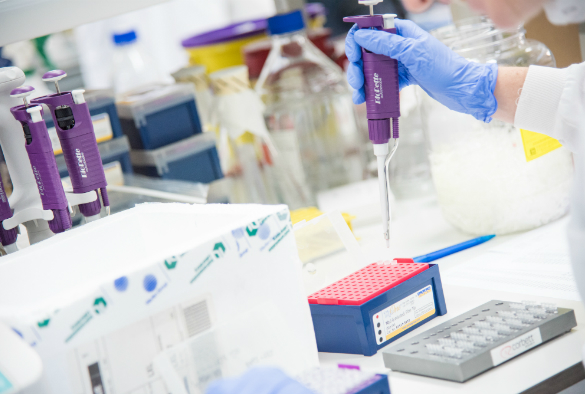
A new £1.4m national research trial to tackle antibiotic overuse in hospitalised children and reduce the spread of antimicrobial resistance is being led by the University of Liverpool and Alder Hey Children’s NHS Foundation Trust.
The ‘Biomarker-guided duration of Antibiotic Treatment in Children Hospitalised with confirmed or suspected bacterial infection’ (BATCH) trial is funded by the National Institute for Health Research Health Technology Assessment Programme (NIHR HTA) and will be conducted across ten sites in the UK.
Personalised approach
Currently, when children are hospitalised with bacterial infections there are no evidence-based guidelines on how long to treat the infection for, and doctors may treat for longer than is necessary, leading to overuse of antibiotics, which contributes to antimicrobial resistance.
The BATCH trial will use a personalised approach to safely reduce antibiotic duration in children hospitalised with bacterial infection, through the use of a specific blood test called Procalcitonin.
Most hospitals in the NHS use a blood test called C-Reactive Protein (CRP) to monitor response to antibiotics, but it is not specific for bacterial infection and shows a delayed response. The Procalcitonin test is specific for bacterial infection and responds more quickly than CRP, but is not routinely used in the NHS. Studies done mainly in adults shows that using Procalcitonin to guide clinicians may reduce the amount of antibiotics used, reduce hospital stay, and is not associated with adverse effects such as hospital re-admission, incomplete treatment of infections, relapse or death.
A recent guideline from the National Institute for Health and Care Excellence (NICE) recommends further research on Procalcitonin testing to guide antibiotic use in children.
Timely and innovative
The trial is being led by Professor of Paediatric Infection Enitan Carrol, from the University’s Institute of Infection and Global Health and Alder Hey Children’s NHS Foundation Trust, and aims to ascertain whether this personalised approach can improve patient safety and quality of care, reduce the spread of antimicrobial resistance and reduce time in hospital.
Professor Carrol said: “Our work on diagnostic and prognostic biomarkers of infection in children with bacterial infection over the past five years, has generated evidence suggesting that a personalised approach using serial measurements of biomarkers, could help to tackle antibiotic overuse in hospitalised children. We are delighted to be leading on this national study which will help to definitively answer that question.”
Professor Sir Munir Pirmohamed, Director of the Wolfson Centre for Personalised Medicine, said: “Given the global concerns about antimicrobial resistance, this is a timely and innovative trial, which will provide evidence on the judicious use of antibiotics in children. It also highlights the increasing amounts of novel work being undertaken in Personalised Medicine in Liverpool.”
Professor Hywel Williams, Director for the NIHR HTA Programme, said: “We take the emerging problem of antimicrobial resistance very seriously in the NIHR. I am pleased to see that we are supporting this study that will assess whether using clever technology to try and identify who really needs antibiotics and who might not, can improve the safety and quality of care for children admitted to hospital with infections.”
“Professor Kerry Hood, Director of the Centre for Trials Research, Cardiff University said: “The evaluation of the use of personalised medicine approaches across a broad range of hospitals is rare and vital for us to not only improve the care of children with bacterial infections, but also to understand how we implement in practice personalised care. We are delighted to be working with Professor Carrol on this and it builds on our portfolio of existing evaluations of personalised care in patient with exacerbations of obstructive airways disease and urinary tract infections.”
Other institutions involved in the trial include; Cardiff university, University Hospital Southampton NHS FT, Sheffield Children’s Hospital, Noah’s Ark Children’s Hospital for Wales, Bristol Children’s Hospital, Edinburgh Children’s Hospital, Glasgow Children’s Hospital, Birmingham Heartlands Hospital, Manchester Children’s Hospital, Leeds Children’s Hospital.
For more information please contact edcarrol@liverpool.ac.uk or Thomas-JonesE@cardiff.ac.uk